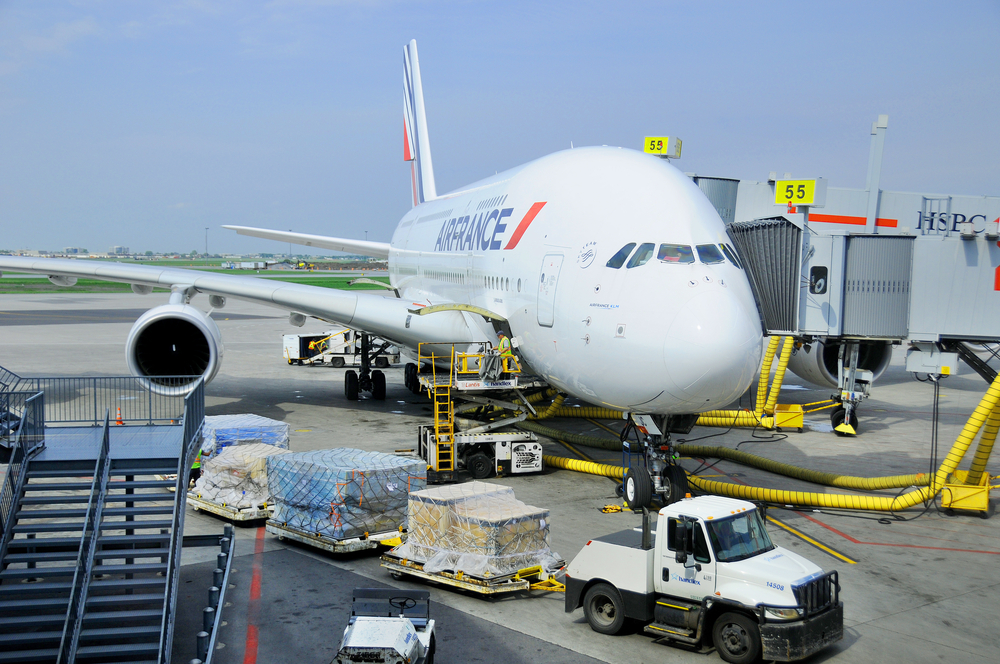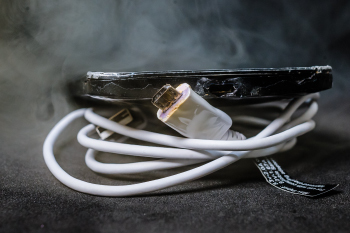Rogue Lithium Battery Shipments Prompt Five-figure Fines
The Federal Aviation Administration (FAA) proposed a $60,000 civil penalty against a lithium battery designer and manufacturer for shipping five undeclared, improperly packaged and labeled lithium-ion batteries from Seoul, South Korea, to Los Angeles, California.
FedEx employees discovered the lithium battery shipment in its sorting facility in Irvine, California, when it emitted heat, smoke, embers, and flames. At least one lithium battery was charred and melted.
The FAA proposed a $74,250 civil penalty against an e-bike manufacturer based in Ontario, California. The Agency alleged the company offered an undeclared hazmat shipment containing lithium-ion batteries for air transportation from Ontario to Shenzhen, China. The Agency alleges the company failed to:
For air crews battling a thermal runaway event, FAA offers this:
Order your copy of the 2026 IATA DGR at Lion.com/Books.
One session left in 2025! Join us for training on December 10 and gain essential knowledge to protect your staff and facility, prevent incidents in transit, and avoid high-dollar civil penalties for violations of US or international hazmat/dangerous goods regulations.
FedEx employees discovered the lithium battery shipment in its sorting facility in Irvine, California, when it emitted heat, smoke, embers, and flames. At least one lithium battery was charred and melted.
The FAA proposed a $74,250 civil penalty against an e-bike manufacturer based in Ontario, California. The Agency alleged the company offered an undeclared hazmat shipment containing lithium-ion batteries for air transportation from Ontario to Shenzhen, China. The Agency alleges the company failed to:
- Declare its dangerous goods shipment of lithium batteries as dangerous goods
- Properly classify, describe, mark, and package the dangerous goods shipment
- Ensure its employees received the required hazardous materials training
- Include emergency response information in shipping papers
FAA: Lithium Batteries Pose Risk in Passenger Cabin
FAA released a Safety Alert for Operators (SAFO) in August 2025 to call air carriers' attention to the risks posed by lithium batteries in the passenger cabin of an aircraft, especially batteries (or power banks) stored out of sight in carry-on bags or overhead bins and not monitored by passengers or crew during the flight. In the alert, FAA recommends actions to lower the risk of fires or thermal runaway events, including review of firefighting procedures and employee training.For air crews battling a thermal runaway event, FAA offers this:
“Traditional firefighting methods should be revised to accommodate the appropriate response to a thermal runaway event. Use of Halon extinguishers can briefly suppress open flames, however they do not halt the thermal runaway process. The primary response involves using large amounts of water to cool the battery and suppress the flames. Cooling the device with water is essential to prevent the reaction from continuing until all cells have discharged their energy.” SAFO 25002, US Federal Aviation AdministrationFAA also links to several other documents related to lithium battery air transportation, safety, and firefighting including these:
- AC 120-80B Firefighting of General and High-Energy In-Flight Fires
- SAFO from June 2009, Fighting Fires Caused by Lithium Type Batteries in Portable Electronic Devices
Regulatory Updates in Effect January 1
The 2026 IATA DGR takes effect January 1, 2026. The following must be offered for transport at a state of charge not exceeding 30% of their rated design capacity or an indicated battery capacity not exceeding 25%:- UN 3481, lithium ion batteries packed with equipment where the cells/batteries have a Watt-hour rating greater than 2.7 Wh.
- UN 3556, Vehicle, lithium ion battery powered where the battery has a Watt-hour rating greater than 100 Wh.
Order your copy of the 2026 IATA DGR at Lion.com/Books.
Shipping Lithium Batteries in 2026
Attend the Shipping Lithium Batteries Webinar to prepare for next year and receive training required for hazmat employees. The webinar delivers trusted, expert-led training with a live instructor in a convenient online format.One session left in 2025! Join us for training on December 10 and gain essential knowledge to protect your staff and facility, prevent incidents in transit, and avoid high-dollar civil penalties for violations of US or international hazmat/dangerous goods regulations.
Tags: FAA, Federal Aviation Administration, fines and penalties, lithium batteries, shipping lithium batteries
Find a Post
Recent Posts
Compliance Archives
Download Our Latest Whitepaper
Find out what makes DOT hazmat training mandatory for employees who sign the hazardous waste manifest, a “dually regulated” document for tracking shipments.

By submitting your phone number, you agree to receive recurring marketing and training text messages. Consent to receive text messages is not required for any purchases. Text STOP at any time to cancel. Message and data rates may apply. View our Terms & Conditions and Privacy Policy.


